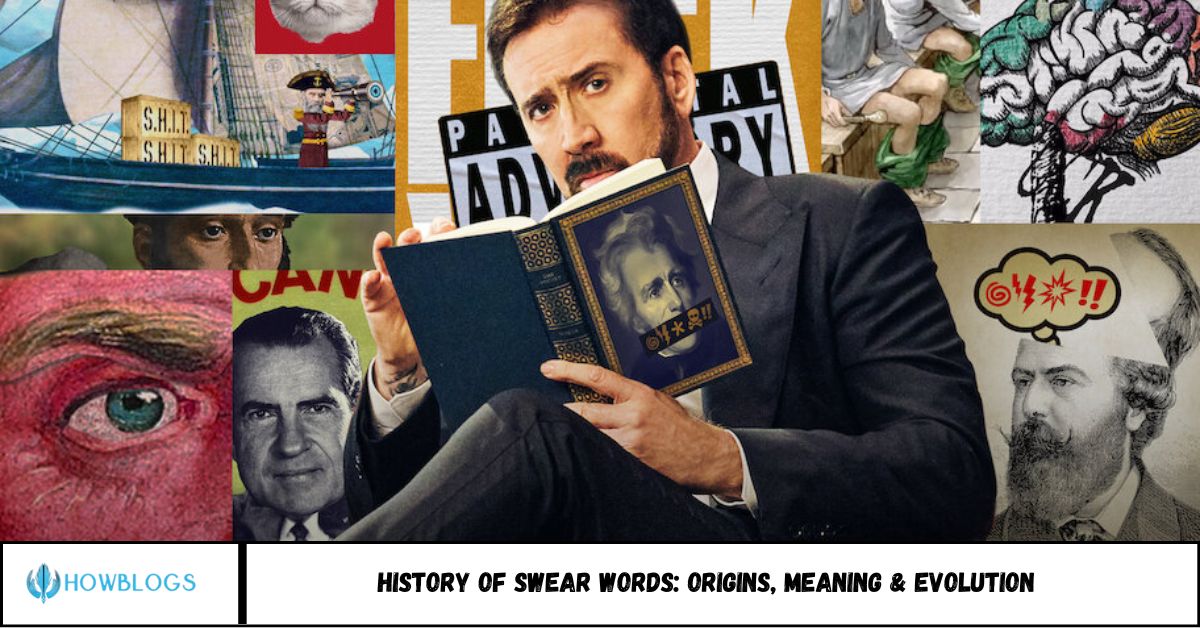Table of Contents
Bad words” have always been powerful. But why? And who decided they were bad in the first place?
Swear words are part of everyday language—whether muttered in frustration, screamed in rage, or whispered for shock value. They can be funny, insulting, cathartic, or downright taboo. But their origins are rarely discussed. Where did profanity come from? Why does it carry so much emotional weight? And how has its meaning shifted over time?
In this article, we’ll trace the history of swear words, from ancient curses to modern expletives. You’ll learn how society has shaped—and been shaped by—its most controversial vocabulary.
Swear words are everywhere—but where the hell did they come from?
Whether muttered in frustration or shouted in traffic, swearing is surprisingly powerful. Science says it’s not just satisfying—it’s good for you. Studies show that profanity can increase pain tolerance, reduce stress, and even boost honesty and emotional resilience.
But these so-called “bad words” didn’t just appear out of thin air. From ancient Roman curses to Renaissance insults and modern-day expletives, the history of swearing reveals how language, culture, and taboo have evolved side by side.
Ready to find out how four-letter words became a permanent fixture in human communication? Let’s go way back.
What Makes a Word a “Swear Word”?
Not every offensive word is a swear word, and not every swear word is offensive in every culture.
Swear words tend to fall into a few key categories:
- Religious blasphemy (e.g., “damn,” “hell”)
- Sexual language (you know the ones)
- Bodily functions (think “s—” and others)
- Slurs or insults (many of which are highly context-dependent)
Their common link? They break social norms. Whether tied to morality, decency, or tradition, swear words push boundaries. That’s why they’re often censored, bleeped, or frowned upon—but also why they feel so satisfying to say.
Swear Words in Ancient History
Swearing isn’t new. In fact, it’s been around since the dawn of language. Ancient Roman graffiti included some of the same crude themes we still see today—sex, excrement, and insults. In Anglo-Saxon England, words for body parts or natural functions were not inherently offensive. But as language evolved, so did our discomfort with certain topics.
By the Middle Ages, religious oaths were the most severe form of swearing. To “take the Lord’s name in vain” was considered morally dangerous, not just rude. That’s where the term “swear” came from—making a sacred vow or invoking divine authority.
The Power Shift: From Sacred to Sexual
As the church’s grip on language loosened, sexual and scatological terms took center stage. By the Victorian era, saying words related to sex or bodily functions was seen as crude or low-class. This shift wasn’t just linguistic—it was social. Profanity became a way to draw lines between the “proper” and the “improper.”
That’s also when euphemisms became popular. Think “darn” instead of “damn,” or “heck” instead of “hell.” It let people vent without breaking the rules—at least technically.
Swearing in Modern Culture
Fast forward to today, and swear words are everywhere—from music and movies to memes and everyday conversation.
Here’s what research shows:
- Swearing can relieve pain and reduce stress. A 2009 Keele University study found that people who swore during a cold pressor test (hand in icy water) could tolerate pain longer.
- People who swear tend to be more honest, according to a 2017 study published in Social Psychological and Personality Science.
- Profanity can improve communication by adding emotional intensity or clarity—when used deliberately.
Swearing has become a social tool, not just a taboo. It can bond us, vent frustration, or make a joke hit harder. But context still matters. What’s okay with friends might not fly at work or in public.
The Constant Evolution of Cursing
What’s considered profane changes over time. Some words that were once shocking now seem tame. Others, once acceptable, are now deeply offensive. Swear words evolve as society changes—just like fashion, music, or politics.
Fun fact: Shakespeare was full of creative insults, but few of his lines would be considered “profane” today. Yet they carried the same emotional punch in his time
Frequently Asked Questions (FAQs)
1. What is the oldest known swear word?
Likely a Sumerian insult involving defecation, dating back over 4,000 years. Ancient languages included curse words related to bodily functions and sex.
2. Why do people swear when in pain or angry?
Swearing activates the amygdala, releasing adrenaline and endorphins. It helps process strong emotion and reduce pain temporarily.
3. Are swear words the same in every culture?
No. Every culture has its own profanities tied to specific taboos—religion, sex, family, or race. Some swear words don’t translate at all.
4. Is swearing bad for you?
Not necessarily. In moderation, swearing can relieve stress, enhance communication, and even make people seem more genuine.
5. Why are swear words censored in media?
To comply with broadcast standards, protect younger audiences, and avoid offending viewers. But rules vary by country and platform.
6. Can swear words lose their power over time?
Yes. As society becomes desensitized, old curse words may lose impact—while new taboo terms emerge to replace them
Conclusion
Swear words are more than just rants or rudeness—they’re a living reflection of what society fears, suppresses, or finds too powerful to name. From ancient oaths to modern-day expletives, profanity has always carried cultural weight.

